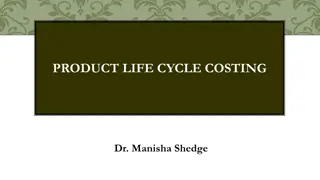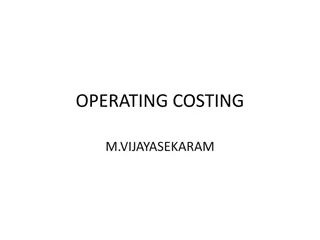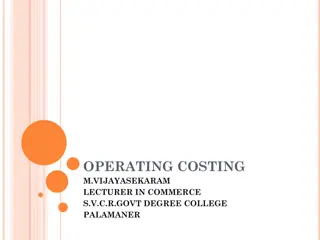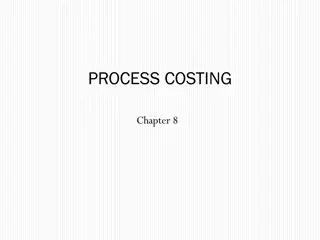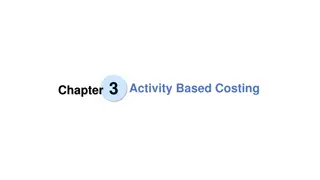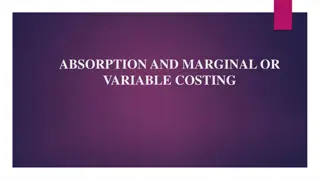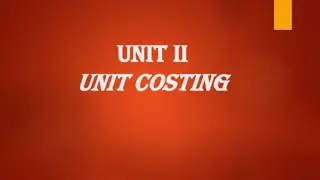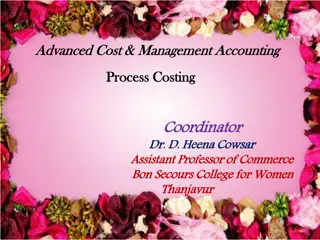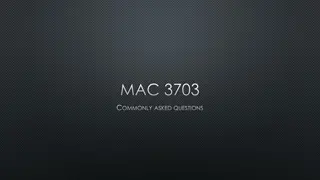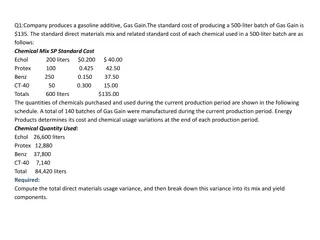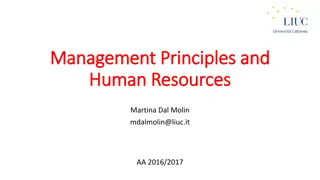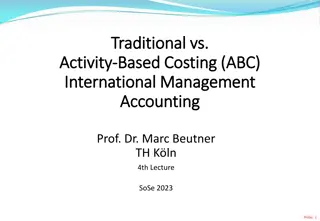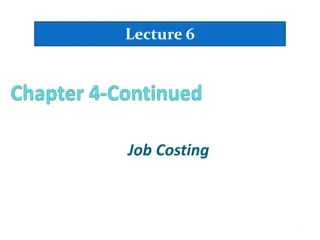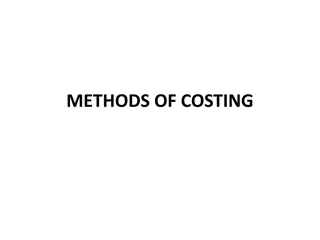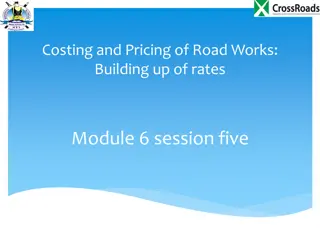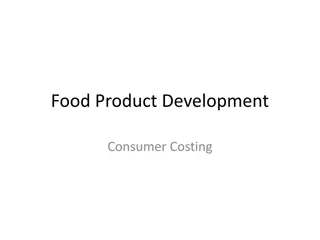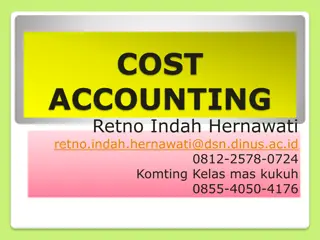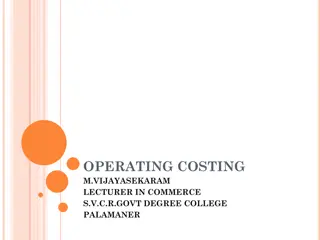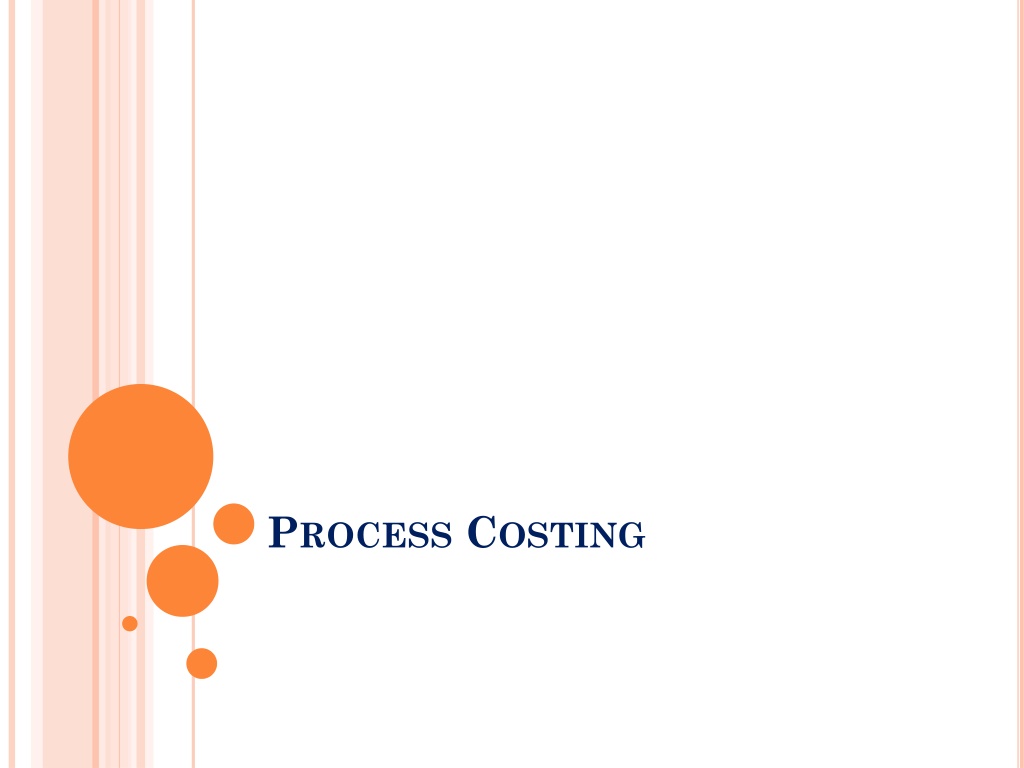
Understanding Process Costing in Industries
"Discover the method of process costing used in industries such as soap making, oil refining, and textile mills. Differentiate process costing from job costing, learn about cost calculation, work in progress, and cost control. Dive into the application and benefits of process costing in manufacturing sectors." (386 characters)
Download Presentation

Please find below an Image/Link to download the presentation.
The content on the website is provided AS IS for your information and personal use only. It may not be sold, licensed, or shared on other websites without obtaining consent from the author. If you encounter any issues during the download, it is possible that the publisher has removed the file from their server.
You are allowed to download the files provided on this website for personal or commercial use, subject to the condition that they are used lawfully. All files are the property of their respective owners.
The content on the website is provided AS IS for your information and personal use only. It may not be sold, licensed, or shared on other websites without obtaining consent from the author.
E N D
Presentation Transcript
Process Costing is a method under which the cost is ascertained process wise. This is a method of costing under which costs are accumulated for each process separately. Essential features of process costing in brief are as under: The production is continuous until the final product is obtained. The finished product is the result of two or more processes or operations. The finished product of one process or previous process becomes the raw material for the subsequent process and the process continues till the finished goods are transferred to warehouse. The products are standardised and homogeneous. Each process or operation is distinct and is pre-determined. It is the costing of processes. That is costs are collected process wise for a period and the cost of product is ascertained at each process separately. The cost per unit produced is the average cost which is calculated by dividing the total process cost by the number of units produced.
Application of process costing: Process costing method is adopted in the following types of Industries: Soap making Oil refining Biscuit manufactories Milk Dairies Textile Mils
Process costing v/s Job Costing Production: In process costing there is continuous production of a standard product. Products are of uniform variety, thus one unit is similar to the other. In job costing production is against specific orders and individual specifications. Therefore each job is distinguishable from the other. Cost ascertainment: In process costing costs are accumulated for each process for a period. Costs are ascertained for each job under job costing, time or period being insignificant. Transfer: Transfer of costs from one process to another is made in process costing, as the product moves from one process to another. There are usually no transfers from one job to another unless there is a surplus work or excess production. But in job costing the costs are generally not transferred from one job to the other.
Cost calculation: In process costing costs are calculated at the end of the cost period. On the contrary costs are compiled when a job is completed in job costing. Work in progress: In process costing on account of continuous nature of production, work in progress in the beginning and end of the accounting period is a regular feature. In job costing there may be or may not be work in progress in the beginning and end of the accounting period. Cost Control: Since the factory process and products are standardised cost control is comparatively easier in process costing. In Job Costing proper control is comparatively difficult as each product unit is different and the production is not continuous.
Accounting Procedure A separate account called process Account is opened for each process and cost data relating to each process is presented. All expenses of a process are classified under material, labour and overhead which can be directly debited the process account concerned. The amount realised from the sale of residue or by product or wastage from the process is credited to the process account. Another item of credit given to the process account is perhaps losses in the process. The result will be the actual cost of each process and the quantity of product obtained in the intermediate stage of production, which will be carried forward to the next process. Cost per unit at each stage can also be computed by dividing the total cost of a process by the total output of that process.


